Taking place at different moments in the shared life of Didier and Elise, The Broken Circle Breakdown jumps between past and present, creating a simultaneously sexy and heartbreaking picture of a modern Flemish family living in the countryside. Johan Heldenbergh, who co-wrote the play upon which the film is based, plays Didier with a rare, touching intensity. Meanwhile, Veerle Baetens is charming as Elise, the playful and unpredictable tattoo artist with whom he is quickly smitten. Rounding out the flawless, intimate cast is the young newcomer Nell Cattrysse, who sweetly and convincingly portrays their daughter, Maybelle.
In the first half, the director Felix van Groeningen manages to make the film sufficiently refreshing despite its bleak, straightforward storyline of parents confronting the death of their young child. As the mother falls into a deep depression, van Groeningen returns to the couple’s first encounter in an invigorating reminder of their undeniable mutual attraction and affection. Their relationship grows and deepens through several lovely, dreamy scenes of them singing together in an American-inspired bluegrass band. When their relationship begins to falter, the film ventures into more predictable and less interesting territory.
Awkwardly interwoven into the story are television news reports from the United States, first of the attack on the Twin Towers and then President George W. Bush’s speech on his veto of stem cell research funding. This gives way to an unfortunate series of dialogues and one long, disruptive diatribe in which Didier expresses his grief by attacking Bush’s religious zealousness for the lack of a cure that could have saved his daughter’s life. Nonetheless, these references do not feel completely out of place, as the connection between the lovers stems in large part from their mutual passion for American culture. The trajectory of their love affair is thus mirrored by their image of America—beginning as idealistic and eventually deteriorating into angry disillusion.
Rage and overwhelming anguish dominate the last half, during which Elise tells Didier that losing Maybelle was fate’s way of evening out the score for their “too good to be true” relationship, which had continued to grow strong even through Maybelle’s sickness and treatment. While the film’s structure seems to support this position, oscillating between a paradisiacal romance and the impossible suffering of the loss of a child, it also appears to present such a mind-set as tragically self-fulfilling. The downward spiral the couple finally takes feels inevitable, yet the film’s unsurprising showings of remorse and mourning regrettably have nothing new to say about its subject. (Don’t Look Now, albeit a horror film, comes to mind as a similarly erotic film that nevertheless is plotted around the death of a child.)
Broken Circle grasps at a tale of divergent collective mourning that challenges and potentially overcomes—depending on one’s interpretation—a once seemingly unbreakable bond. Didier and Elise uncontrollably torment each other, first with reciprocal blaming for their daughter’s death and then with Didier refusing to allow Elise any solace in the notion that Maybelle remains present in their lives. The film wrestles between a sadness driven to despair by religious hope and an uncompromising, destructive, and irrepressible anger. It is, however, at its best when focused on the couple’s romance and sexual attraction, which is brought to beautiful, pulsing life by Ruben Impens’ rapturous cinematography. In the end, van Groeningen rescues the film from aimless political and tragic posturing with a moving and plot resolving closing shot
Although the pieces of this ambitious film do not always fit, The Broken Circle Breakdown consistently engages in its depiction of the struggle to resist the crushing devastation left in the wake of death. It ultimately distinguishes itself by the powerful chemistry of its lead actors and the uplifting, soulful sounds of its bluegrass score.

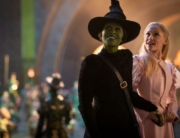
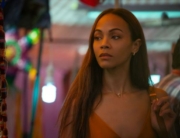
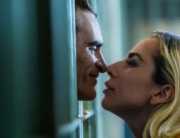
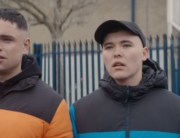
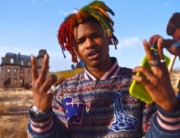
Identifying w/the character of Elise (I, too, lost a child some years back), similar reactions played out in my own life. I am no longer w/the father of the child we lost due to different viewpoints; not religious, per se, but more so the stages of grieving. I have watched this film again & again & each time I find small nuances that answer a question from the previous viewing. Although, I am still curious as to what Elise’s spirit whispered in Didier’s ear toward the end of the film as well as the tattoo shown as the final scene of the movie; did she intentionally kill herself or was she intending to start over w/Didier as Alabama & Monroe?
I’m very sorry for your loss Sheila. You are very strong to be able to watch this film. I thought she may have whispered for didier to come with her but a review I read presumed she whispered to ‘let her go’. I personally think she did plan to die but maybe not. Such a beautiful yet sad film.